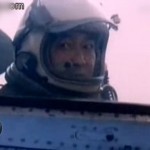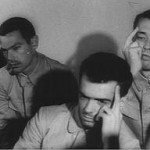According to the Daily NK:
Even though the price of rice is over 1,300 won per kilogram in North Korean markets, cadres and the upper class are hoarding rice and grain. This is because a rumor is spreading saying that the international community may suspend food aid to North Korea next year due to the Yeonpyeong attack so the price of rice may not drop next year.
A source from Hoiryeong, North Hamkyung Province, said that, “In the Hoiryeong Jangmadang, rice sells over for 1,300 won per kilogram. Even though it is an unreasonably higher price than in previous years, the wealthy are hoarding the rice they will consume for the next year.”
Immediately after the Yeonpyeong attack, the price of rice soared to over 1,300 won and has stayed at that level. This is because the value of the Yuan has gone up since the currency redenomination last year.
The source explained, “Despite the high price of rice, people purchase it in bulk because they believe that next year the price may not decline considering the current trend.” He added, “A rumor that we won’t receive food aid next year due to being internationally isolated has been circulated by those who get international and domestic information via foreign radio or those who have visited China for private reasons.”
The source reported that, “Based on the experiences of the last decade, people know very well that there will be no food aid from the outside world when the situation is tense like it is this year.”
“Not only those who support themselves through commerce, but also family members of officials of the National Security Agency and People’s Safety Ministry, who primarily live off the national distribution system, are spending all the money they’ve saved to buy up food. They buy reserve provisions in order not to worry about a possible suspension of the distribution system.”
According to the explanation of the source, at the time of the November 30 currency redenomination last year, those who had goods to trade did not get hit hard. Therefore, wealthy people try to obtain more food despite the high price.
Read the full story here:
The Rich Hoarding Rice
Daily NK
Yoo Gwan Hee
12/29/2010


